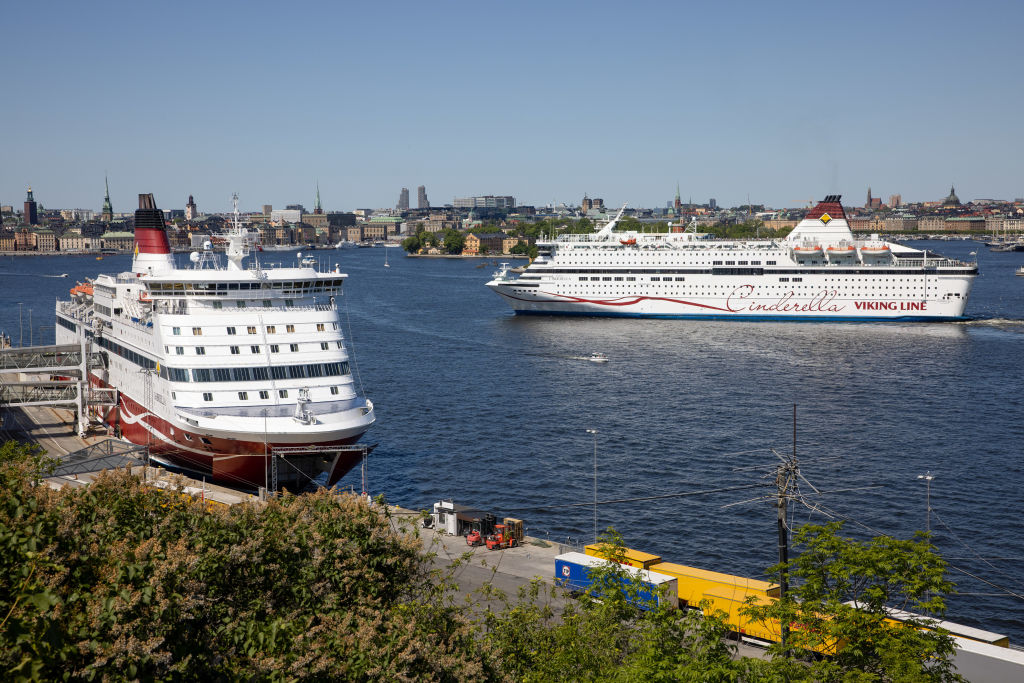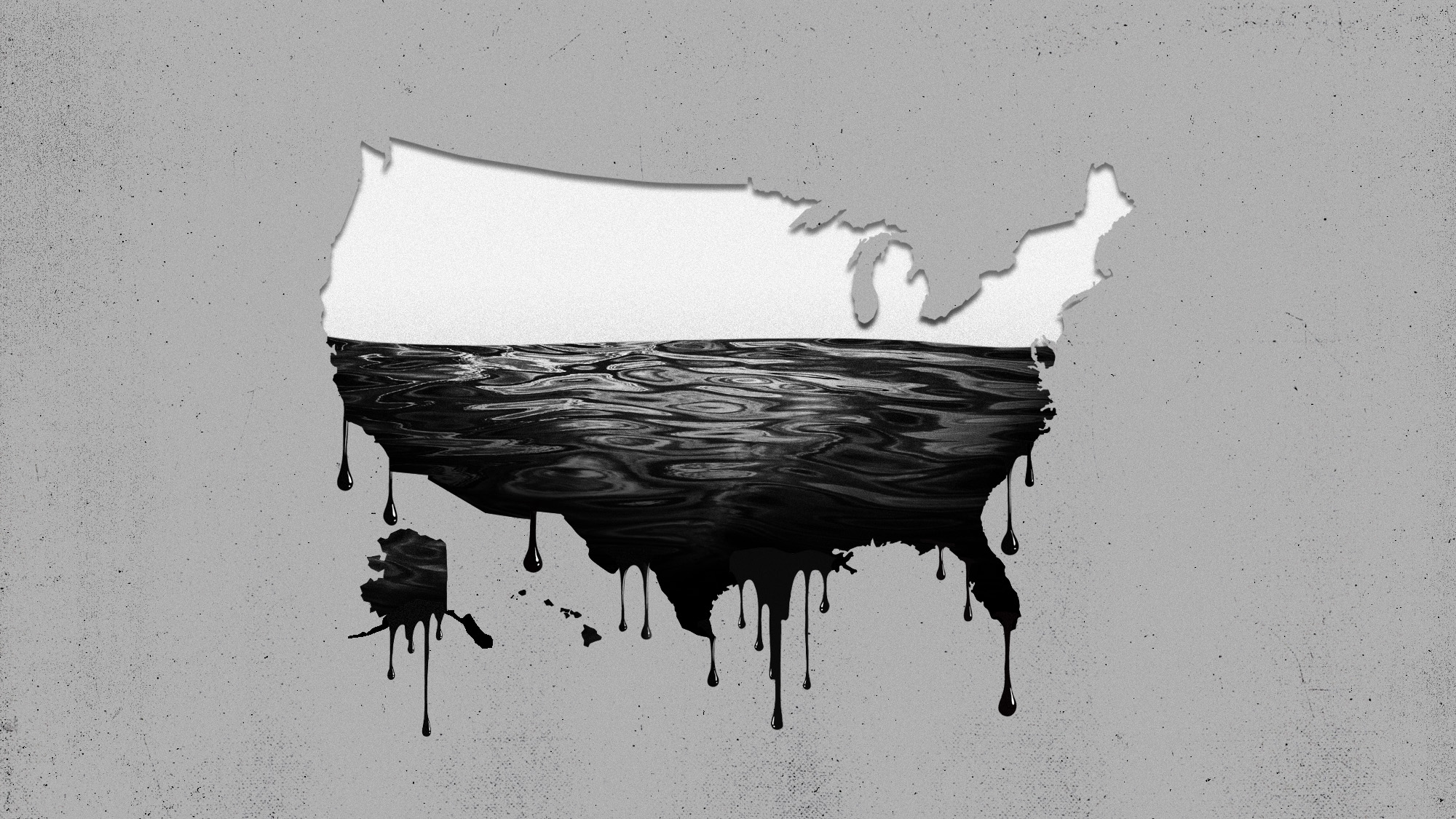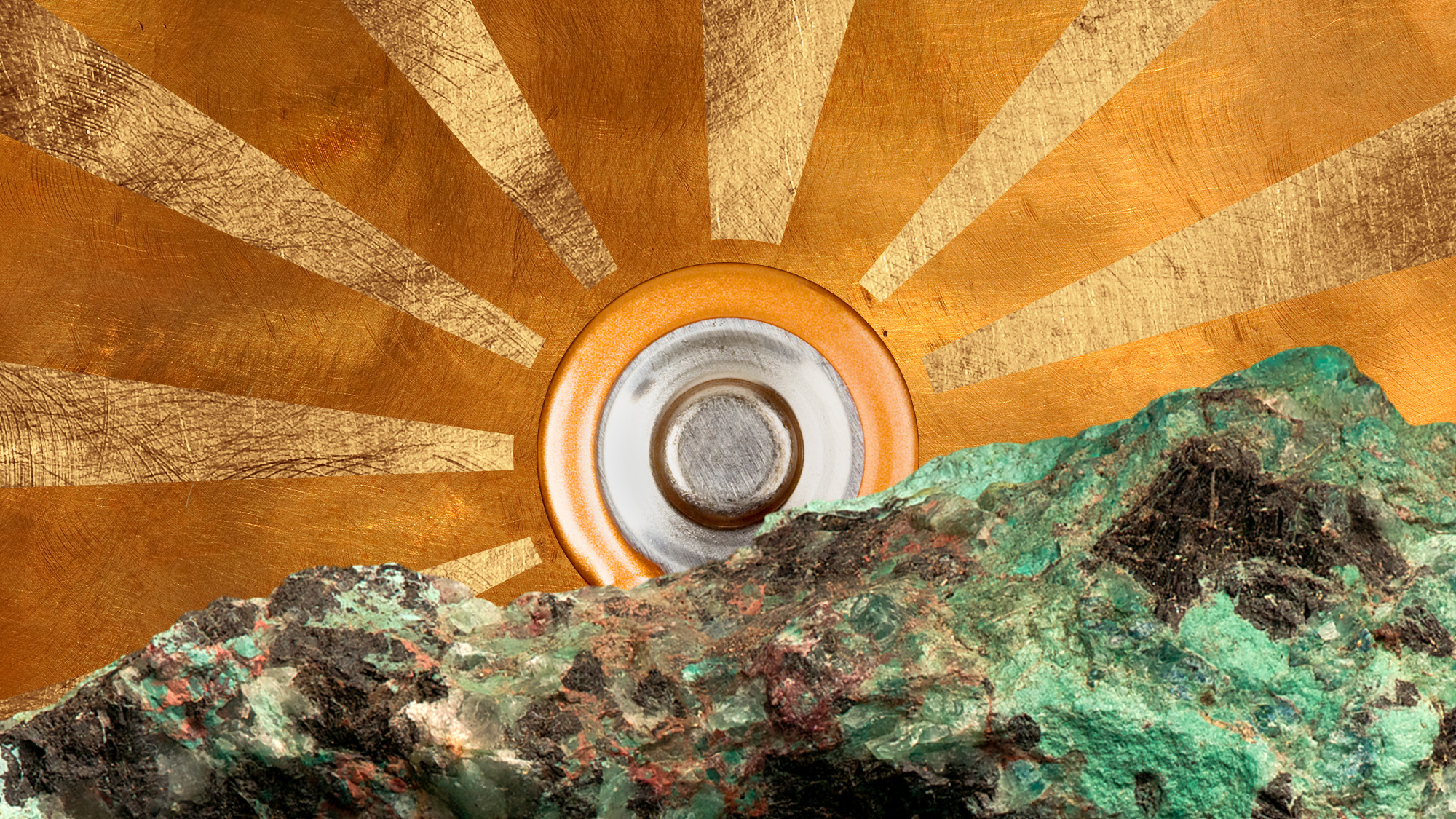How the cruise industry is pivoting to sustainability
Cruise ships are notoriously bad for the environment, but this might be changing


A free daily email with the biggest news stories of the day – and the best features from TheWeek.com
You are now subscribed
Your newsletter sign-up was successful
The cruise industry is back and booming. By the end of 2023, an estimated 31.5 million passengers will travel on a cruise ship, according to Statista, and that figure exceeds even pre-pandemic numbers. The sector is expected to keep growing exponentially, with Statista estimating nearly 40 million annual cruisers by 2027.
With this uptick, though, comes renewed questions about the cruise industry's negative effect on the environment. Cruise ships are "an environmental disaster," Popular Science reported, with the behemoth ships "having a massive effect on the climate." One study from the University of Exeter showed that the average cruise ship produces the same amount of carbon emissions as 12,000 cars.
While other transportation sectors, like air travel, are working to become more eco-friendly, cruise ships have long been the bane of environmentalists. Groups like Friends of the Earth claim that "everything that cruise ships come in contact with are likely to be harmed along their journey." However, the industry has begun working on alternatives to their fuel-guzzling vessels, and is exploring ways to make voyages by ship both enjoyable and green.
The Week
Escape your echo chamber. Get the facts behind the news, plus analysis from multiple perspectives.

Sign up for The Week's Free Newsletters
From our morning news briefing to a weekly Good News Newsletter, get the best of The Week delivered directly to your inbox.
From our morning news briefing to a weekly Good News Newsletter, get the best of The Week delivered directly to your inbox.
How bad are cruise ships for the environment?
Traditional diesel-powered cruise ships pump out massive quantities of toxic emissions, experts say. While the entire shipping industry emits "2.9% of global carbon dioxide emissions," cruise ships "produce more carbon dioxide annually on average than any other kind of ship due to their air conditioning, heated pools and other hotel amenities," The Associated Press reported, citing a study from the European Federation for Transport and Environment.
Then there are the passengers themselves. A person's carbon footprint "triples in size when taking a cruise," Forbes said, and "the emissions produced can contribute to serious health issues." The scale of cruise ships causes a tremendous amount of garbage to accumulate onboard, and "cruise ships have been caught discarding trash, fuel, and sewage directly into the ocean," Forbes added.
Many resort towns that welcome cruise ships have been directly affected by pollution from the vessels, and there has been a purported rise in medical problems in some of these areas. In the French city of Marseille, for instance, shipping pollution "is estimated to account for up to 10% of the city's air pollution problem," The Guardian reported. One man who lives above the ship-docking area in Marseille has "noticed that the cancer cases here began emerging in the years after the cruise ship boom, as the ships got bigger and more arrived," he told The Guardian.
How are cruise lines reacting?
Many companies within the industry are attempting to pivot to sustainability, and a variety of greener options have been proposed. Nearly every cruise line "is investing in green initiatives, from looking at carbon footprint to refining emissions," Colleen McDaniel, editor-in-chief of Cruise Critic, told CNN.
A free daily email with the biggest news stories of the day – and the best features from TheWeek.com
One of the key aspects of the shift is an attempted move toward alternative fuel sources. Industry trade group Cruise Lines International Association (CLIA) has committed to net-zero carbon emissions by 2050. Two main alternates are battery and hydrogen-powered ships. Despite the well-publicized danger of hydrogen vehicles, "more than 15% of cruise ships debuting in the next five years" will be equipped with hydrogen fuel cells or battery incorporations, CLIA said, with Stanford University professor Marc Jacobsen telling CNN they are "far cleaner solutions" for ships.
Norwegian cruise line Hurtigruten has said it will no longer build fossil fuel-based ships, and is attempting to craft the world's first zero-emission liner. The ship will operate on batteries that "would allow it to run for well over 300 miles before recharging," Time reported. To maximize the ship's range before charging, Hurtigruten "is exploring using underwater maneuvering jets that can retract into the hull to cut drag," and will potentially be "adding sails and solar panels to harness extra power." The company told Time will have a final design for the ship by 2025, with plans to have it water-ready by 2030.
Other initiatives include onboard changes, and "most lines have reduced or eliminated single-use plastics aboard," Travel + Leisure noted. "Waste heat recovery systems are allowing ships like those in the Disney Cruise Line fleet to reduce water usage," the outlet added, and "many cruise lines are also making investments in big-picture sustainability efforts."
Justin Klawans has worked as a staff writer at The Week since 2022. He began his career covering local news before joining Newsweek as a breaking news reporter, where he wrote about politics, national and global affairs, business, crime, sports, film, television and other news. Justin has also freelanced for outlets including Collider and United Press International.
-
 The ‘ravenous’ demand for Cornish minerals
The ‘ravenous’ demand for Cornish mineralsUnder the Radar Growing need for critical minerals to power tech has intensified ‘appetite’ for lithium, which could be a ‘huge boon’ for local economy
-
 Why are election experts taking Trump’s midterm threats seriously?
Why are election experts taking Trump’s midterm threats seriously?IN THE SPOTLIGHT As the president muses about polling place deployments and a centralized electoral system aimed at one-party control, lawmakers are taking this administration at its word
-
 ‘Restaurateurs have become millionaires’
‘Restaurateurs have become millionaires’Instant Opinion Opinion, comment and editorials of the day
-
 Jared and Ivanka's Albanian island
Jared and Ivanka's Albanian islandUnder The Radar The deal to develop Sazan has been met with widespread opposition
-
 Airport expansion: is Labour choosing growth over the environment?
Airport expansion: is Labour choosing growth over the environment?Today's Big Question Government indicates support for third Heathrow runway and expansion of Gatwick and Luton, despite climate concerns
-
 Christmas trees: losing their magic?
Christmas trees: losing their magic?In the Spotlight Festive firs are a yuletide staple but are their days numbered?
-
 Big Oil doesn't need to 'drill, baby, drill'
Big Oil doesn't need to 'drill, baby, drill'In the Spotlight Trump wants to expand production. Oil companies already have record output.
-
 The ocean's blue economy is growing. Can the tide continue to rise?
The ocean's blue economy is growing. Can the tide continue to rise?The Explainer The big blue is bringing in the green
-
 The rise of the world's first trillionaire
The rise of the world's first trillionairein depth When will it happen, and who will it be?
-
 A massive copper shortage is on the horizon
A massive copper shortage is on the horizonUnder the Radar It is estimated that mines will only meet 80% of copper needs by 2030
-
 Hydrogen cars are trying to be the next big sustainable vehicle
Hydrogen cars are trying to be the next big sustainable vehicleUnder the Radar But questions remain as to whether they can overtake battery-powered electric cars
